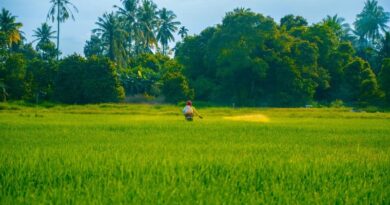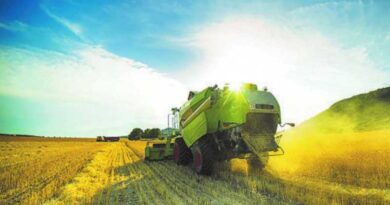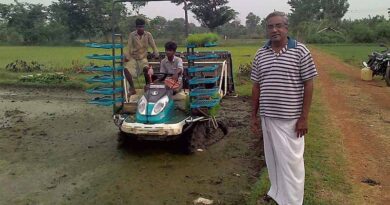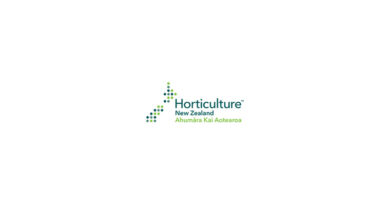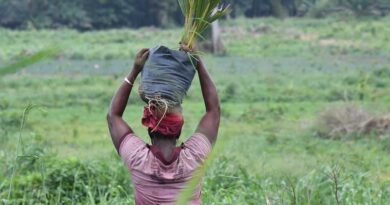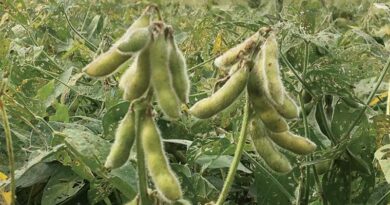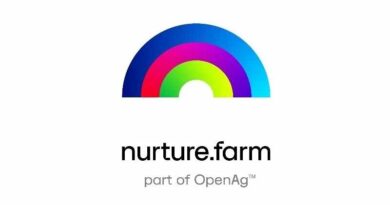Sustainable Farming Incentive – will it work for you?
03 November 2021, UK: Lewis Butlin of Agrovista Rural Consultancy provides a timely overview of the new Sustainable Farming Incentive.
Defra’s new farm support scheme, Environmental Land Management (ELM), was due to start towards the end of 2024, marking a pivotal change in the way farmers and land managers would be supported by providing “public money for public goods”.
As the realisation that the current support system, BPS, was actually going to be phased out completely by the end of 2027, and would be subject to severe cuts from 2021 onwards, there was increasing pressure from the industry in 2020 to provide an earlier start to ELM.
In November 2020, Defra secretary George Eustice announced the initial details of the first tier of ELM as the Sustainable Farming Incentive (SFI).
Further details were announced in February 2021, followed by invitations to farmers and landowners to enter a pilot scheme for SFI that would start in autumn 2021.
Under this pilot, only land that was not within an environmental scheme could be entered. Defra was hoping for around 10,000 expressions of interest from which they could choose 1,200 participants to provide a sufficient spread of both geography and farming systems to obtain a good overview of how the SFI would work in all situations. However, only 2,168 expressions of interest were received, so all respondents were invited to submit an application.
An evolving scheme, the SFI has initially been set with eight standards, with up to three levels of engagement within each. These are:
• Arable and horticultural land and soils standards
• Improved grassland and soils standards
• Low and no input grassland standard
• Hedgerow standard
• On farm woodland standard
• Waterbody buffering standard.
Further standards will be introduced to cover areas such as animal welfare at a later date.
The SFI is designed to be a farmer-friendly scheme that can easily be applied for online through the RPA portal. The actual application process is in fact fairly simple to follow through and will be very familiar to those used to using the RPA portal for BPS and Countryside Stewardship applications and claims.
Understanding what is being signed up to and the implications of doing so is a different story. Although some of the requirements are very simple to understand and the recording of the activities will be fairly easy, there are elements of the options that will require some considerable thought to work out the best combination of options to achieve the required results that also fit in with the farming situation.
Some options have plenty of choices to enable applicants to pick those that fit best within their farms and farming systems. A combination of grass buffer strips, field corners, pollen and nectar, wild bird seed and herbal leys will all be familiar options to those that have been a part of stewardship schemes past and present.
Naturally, soil health is a big part of the Arable and Grassland Soils Standards. Rewarding farmers for looking at, and recording the health of, their soils will bring about consequential benefits of management that will aid carbon sequestration.
Improved productivity through investment in precision farming techniques and equipment could be attractive to those that have not yet ventured down that route. However, for smaller farm businesses, some options may limit the level of engagement to ensure they are not committing to big investments that cannot be justified on their size of unit or that require them to engage with a contractor or neighbour to carry out field operations.
As with all pilot schemes it is envisaged that, depending on feedback, the final scheme set to be launched in the spring of 2022 will look different to what we are currently seeing. The SFI has the potential to take Good Agricultural and Environmental Conditions (GAECs) to the next level, implementing positive management of the environment, that will benefit not just poorer areas but the whole farm.
This will increase productivity, reduce artificial inputs by selective precision applications and improve care of the soil. Management of trees, hedges and watercourses will bring about their own benefits of providing habitats and preventing diffuse pollution.
That said, the SFI is not the only initiative and others are well worth considering. A well-constructed CS scheme can buffer some of the diminishing BPS payments until 2027/2028 and there will also be numerous opportunities from the commercial sector, including water companies, and by trading biodiversity.
* Agrovista Rural Consultancy’s dedicated team of experienced farm and environmental business consultants delivers strategic business advice and support across the UK, tailored to your specific needs.
Subject areas include:
• Basic payment scheme
• Countryside stewardship
• Agricultural transition
• ELM
• Nutrient planning
• Cross compliance and regulation adherence
• Grant applications
• Strategic management
• Benchmarking
• Waste licensing
• Planning permission and appraisals
• Forestry management
• Forestry grants, and woodland carbon code.






